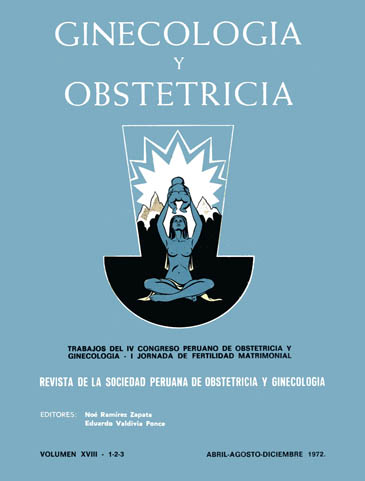Treatment of oligomenorrhea and failure of the corpus luteum.
DOI:
https://doi.org/10.31403/rpgo.v18i1511Abstract
The findings in the experimental use of a new retrosteroide (1-Dihydro-6-Chlor-retroprogesterona) for the treatment of menstrual disorders, constant anovulation or luteal insufficiency in 97 patients were analyzed and compared to observations in 9 patients who received only placebo . This allows us to hold the following suggestions regarding the therapeutic value: 1.-When the endogenous estrogen secretion is adequate and there is no organic lesion disorders are corrected in most patients; 2. is a weak inducer of ovulation. Clomiphene citrate was effective in some patients who premedication with compound retrosteroide had failed; 3. The therapeutic effectiveness in luteal insufficiency is higher, however, a patient in the control group corrected his condition while receiving placebo; 4. The proposed dose not inhibit ovarian function while acting as a progestational agent. It therefore seems particularly useful in the treatment of amenorrhea, irregular excessive bleeding in young patients, yet unwilling to become pregnant; 5. Patients who do not respond to treatment Retroid require careful investigation in search of organic factors; 6. At the doses used Retroid compound has no side effects and does not depress or gonadotropin ovarian function.Downloads
Download data is not yet available.
Downloads
Published
2015-07-23
How to Cite
Onetto, E., Zañartu, J., Galani, M., & Barnafi, L. (2015). Treatment of oligomenorrhea and failure of the corpus luteum. The Peruvian Journal of Gynecology and Obstetrics, 18(1-2-3), 353–357. https://doi.org/10.31403/rpgo.v18i1511
Issue
Section
Congreso
















